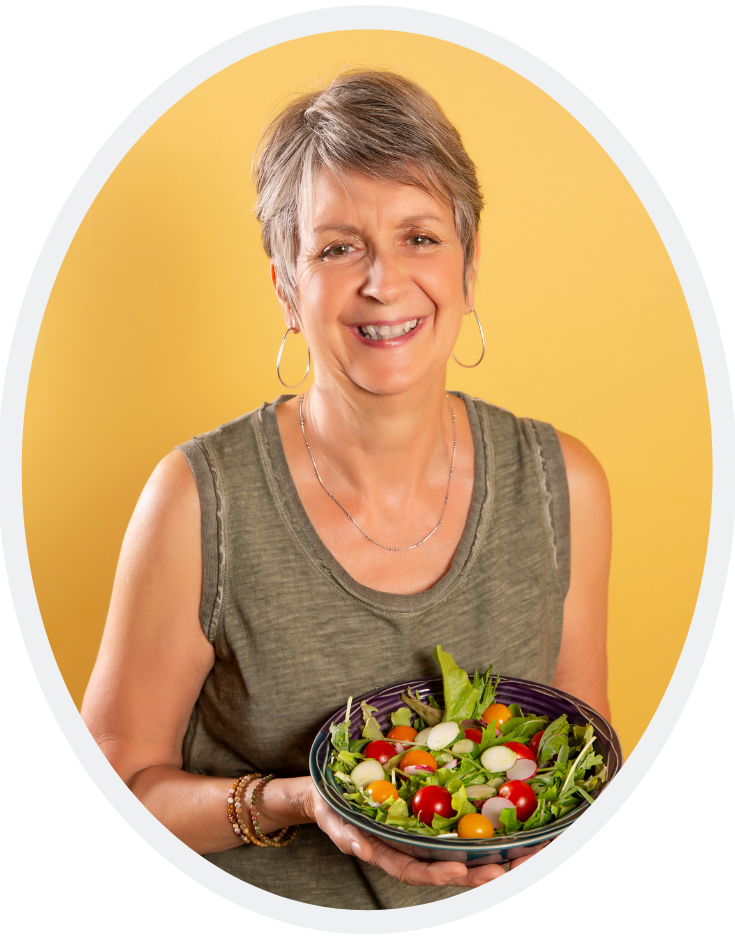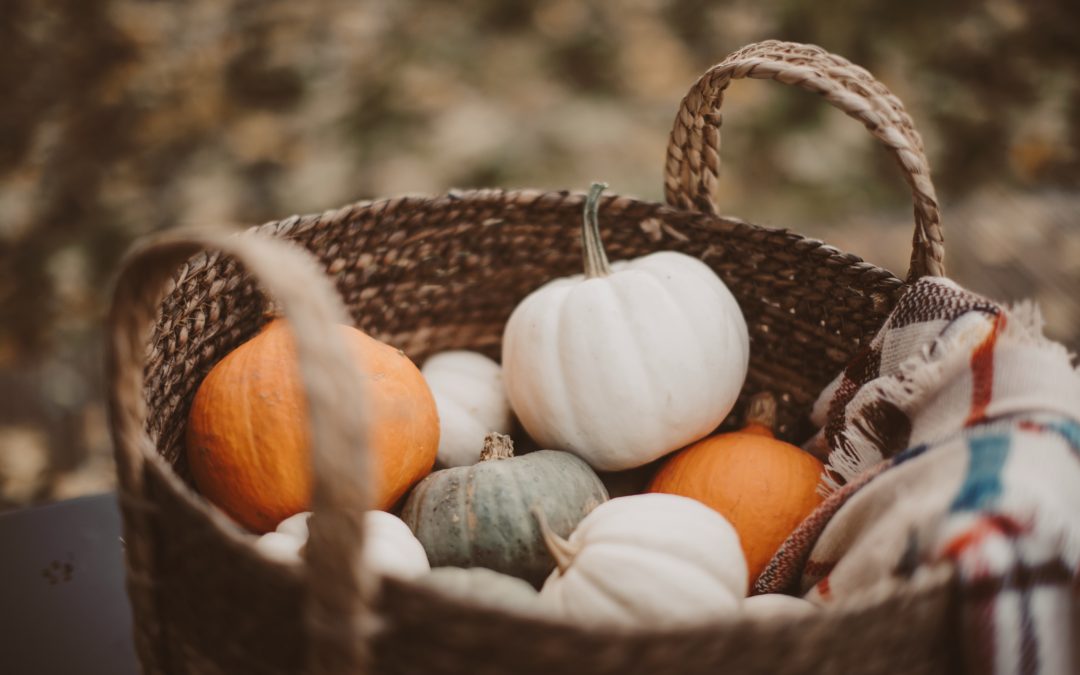Would You Like to Have a Wider Variety of Healthy Foods in Your Diet?
One of the many benefits of eating foods that are in season is that you are able to incorporate a broader variety of foods into your diet. The variety of different foods available during each season can help to expand your palate. You might just find many new favorite fruits and vegetables!
This in turn encourages you to eat a more balanced diet as well. We know that most of us do tend to eat a little differently each season anyway just because of what is available in the grocery stores. But we have become so accustomed to having access to many other foods that are not seasonal for us that it is easy to forget what we should be eating during a particular season.
Did you know that there are said to be over 80,000 edible plant species? But unfortunately in today’s agricultural world we have lost this diversity of those foods that should be available to us. Today there are only about 30 plant species that constitute the majority of what most people eat.
And even within those 30 species, most people actually eat much less variety of plants, i.e. fruits and vegetables than our grand parents and great grandparents did.
Today our industrial agricultural system is focusing on vegetables and fruits that produce higher yields and can withstand both long distance travel and longer term storage. Unfortunately for us these foods end up losing so much of their nutritional value in this process. Foods we can purchase grown in our own community, particularly directly from the farm or farmers markets will be packed with nutrition.
Sadly it is due to less variety of food being grown today by the larger farms or businesses that we have much less diversity. However, if you check out your local farmers markets, you will find that many farmers have been saving heirloom seeds, the same seeds from our grandparents and great grand parents. Then the farmer is able to grow a larger variety of vegetables and fruits than what you will be able to find in your grocery store. And fortunately for us the consumer, these foods will contain many more nutrients.
Eating foods from the industrial agriculture farms has been found to have significantly less nutrients. For example to receive the same nutrients as our grandparents did eating say for example an orange, we would have to eat eight oranges today to get the same nutrients.
This is one of many reasons why organic vegetables and fruits are more in demand. An organic farmer tends to his soil to make sure that the soil the seeds are being grown in is diverse with nutrients. Whereas due to the increasing amount of pesticides, fungicides and herbicides being sprayed on conventional farmed foods, these soils are now depleted of any nutrients. Therefore the foods grown in those soils are also sadly deficient of nutrients.
So to get the most bang for your buck, shop local, support your local farmers, buy organic when ever possible or at least find out if they are using sprays. When you shop this way you will know for sure the foods you are eating are in season and will be more nutrient dense! This is the type of food to be eating to generate better health and wellbeing.
Our Ancient Ancestors Always Ate Seasonally!
Could it be because they had no other choice? Of course it was. They would make the most of what ever foods they could find during each season, often travelling around to do so. They did not have access to those foods at any other time of the year. Our more recent ancestors used to can, pickle, and ferment foods to be able to keep them throughout the winter months. Interestingly, these methods of preserving foods has gained huge popularity again.
As mentioned above, it is easy for us to forget about seasonal food because we can get foods from many different countries year round and we can begin to assume that this is normal.
I can remember growing up, as can most of you I’m sure, of only having something like mandarine oranges available at Christmas time. Now there are varieties that we can pretty much have year round! And this is just one example of a food that for one may not be local and secondly is certainly not always a seasonal food.
The Costs of NOT Eating Seasonally
There has been more and more discussion of the negative effects of not eating local, seasonal foods given the climate change topic which is being debated now. When we eat foods that are not seasonal, these foods have often been picked before they are ripe so that they can survive the long journey to their destinations. Often times being shipped across the world to you. This involves the use of fossil fuels for their transport, refrigeration and extra handling.
What this means for you is that they no longer taste as good as a fruit or vegetable you would eat fresh. And oftentimes many of these food items end up wilting on the supermarket shelves. This means even less flavor, not to mention less nutrients as the food was picked many days ago.
Another thing to consider is the cost of these non seasonal items. Because they have had to travel a great distance and have to be handled by so many people, these costs end up being passed on to you, the consumer.
What Are The Benefits of Eating Seasonally?
Eating foods that are in season not only taste better, but they are so much better for you! Have you ever had a fresh picked tomato that was ripened on the vine? There is no comparison in taste to the tomatoes you will find in the grocery store.
A fresh fruit or vegetable is going to have so many more nutrients available to your body than most items you will buy from the grocery produce section. Perhaps you have noticed that due to demand, more grocery stores are now selling local produce in their stores, helping to support your local farmers.
Another huge benefit to eating seasonally is that you will help to keep your own body in sync with the seasons as your ancient ancestors did. Eating foods in season are also so much better for the environment because of eliminating the long distance transport, refrigeration and handling.
Eating foods that are in season will actually save you money! Because when you buy food from your local farmers markets for example, you will be getting food at its peak of freshness and flavor. It is cheaper for the farmers and for their distribution of the food items, making it cost less for you. In other words, a win, win situation! Most often items found at your local farmers farm or at the farmers market will cost less than in the grocery store.
Of course, when you shop locally for your food, your money stays in your own community too!
One of the greatest benefits of eating seasonally and local as it pertains to your own health, is that you will get more local bacteria on those foods that you will be eating. These bacteria are those which your body recognizes and can utilize more readily. There is so much science coming out today about our micro biome. This is being classed as a new organ in our body! If we feed our micro biome well with local, seasonal foods, then it will reward us with good health. In other words think of your food as medicine, just as Hippocrates told us a long time ago.
And lastly, eating seasonally helps to support your own community because you are supporting your own local farmers. Many of your local farms and businesses may offer organic or sustainable options if you’re looking to put your money where your taste buds, or your personal ethics are. Choosing organic may cost more, but it is a choice that is beneficial to your health and the environment.
Eating Seasonal Foods To Help Your Body Adapt to Each Season
According to Chinese Medicine, each season is related to a particular group of organs in the body. The spring is related to the liver and gallbladder, the summer months to the small intestine and heart, fall to the colon and lungs, and winter months focus on the kidneys and adrenal glands. Science shows that our body’s physiology actually changes as the seasons change.
Ayurveda the Indian science of healing also follows eating with the rhythms of the seasons. Ayurveda, as in other traditional medicine systems, considers food as medicine. Ayurvedic medicine asks us to do our best to eat what is in season and what is local in our area.
Food affects our Agni, which is considered as our “digestive fire”. When we balance our agni and our digestion we will experience better health. Agni is influenced by how we prepare and eat our food. It is also affected by the foods freshness, its colors and its tastes. In addition agni is affected by how much we eat and the state of our mind when eating.
When I offer my seasonal Detox or Cleanse Programs, we are eating foods specific to the season to help repair, nourish and restore the appropriate organs to maintain the proper functioning of our body as it goes into each season. For example, I am currently doing the Fall Cleanse which focuses on the colon and lungs helping the body to boost its immune system and be ready for the upcoming cold and flu season. In other words, eating the foods in season actually helps your body “adapt” to its environment. Fall squashes contain loads of beta-carotene which is a nutrient that helps support your immune system. Who doesn’t love a bowl of butternut squash soup in the fall months!
Ayurvedic medicine considers the fall and winter a special time for letting go, a time when we can “go within.” These darker months have traditionally been a time when we can reflect on our lives, rest, relax, and rejuvenate for the year ahead. Just like a bear who goes into hibernation. These months can be a time when we get to slow down, rest and heal our bodies.
How Do I know What Seasonal Foods Are?
To eat “seasonally” is to include foods in your diet that are grown at the same time of the year you eat them. So that might mean asparagus in the spring and sqaush in the fall, for example.
Seasonal foods are really just “local” foods. Foods that can be grown in or near your community during the different months of the year.
If you are wondering how to know just what is in season, just check the produce section of your grocery store and watch how prices start to increase or decrease. For example berries are usually cheaper when in season but you will pay more in the fall or winter when they are not because they need to be brought in from another country.
Quality of the produce can be another indicator of what is truly fresh and in season or one that has had to travel miles to get to be placed on that shelf in the store. And when there is an abundance of a certain food it is often put on sale, and this can be another clue as to what foods are seasonal.
Of course it can be confusing today because we do have access to many different foods like strawberries and cucumbers often year round. But just think, if you live in a place that has a true winter season, like lots of snow, then you probably would not expect many of these foods to be grown in your area!
How Can I Get Started?
You might want to check out this site; Eat The Seasons if you live in America for a guide as to what foods are in season right now. And of course shopping at your local farmers market or getting your foods from a local CSA (community supported agriculture), which are your local farms, that might even often offer a delivery service each week of whatever vegetables and fruits are available that week.
You may want to research starting your own small garden, or just growing a few things in pots on your balcony. This will certainly help you to get in touch with the seasons. You might want to consider going to your local farms or orchards and picking yourself.
Begin to cook what is in season. You might be amazed at how many new recipes you will find as you cook up or prepare the foods that are in season. Today, more and more restaurants and food companies are sourcing foods locally and seasonally. But since most don’t, why not start cooking at home yourself? Prepare those seasonal foods with your own love!
This is the best way for you to take advantage of the bounty of seasonal food. And when you start preparing those fresh, seasonal ingredients, you’ll be amazed at just how delicious homemade meals taste.
Of course, different cooking methods are more appropriate in different seasons. Eating more raw foods would make more sense in the summer, while in the winter we want more foods that are warming and comforting.
You may want to learn more about simple preserving techniques. Go ahead and research other methods of preparing foods like canning, smoking, dry salting, pickling, and fermenting. As mentioned earlier in this blog, more and more people are doing this again. Its like the old saying “what goes around comes around”! But the reason it is coming back is because it works! These are all great methods of preserving the foods that are in season. Even stocking up on things like berries in the summer months and freezing them to have for your smoothies in the fall and winter. Frozen foods are still loaded with great nutrients!
But Don’t Feel Restricted in Your Eating Habits
While eating seasonally is going to be far better for your health, your local farmers and your community, don’t think that you should not be eating other foods as well.
If you want to eat a banana, or want to eat cucumbers or apples year round, then go ahead.
But do remember that you will most likely be paying more for these foods and that there might just be a seasonal or a local food alternative that you could buy instead.
If you would like to know more, or if you would like some help making these changes to your own diet, I would be more than happy to help. As a Mind Body Nutrition Coach and graduate of Functional Nutrition, I coach my clients to find what works best for them. I help to empower you to reach your own personal health and lifestyle goals.
I offer a FREE 30 minute Nutritional Strategy Session to see if we might be a good fit to work together. Just click the button below to email me and I will find a spot in my calendar for you!
Your Nourishing Nutritionist,
Lynne Bowsher

Nourishment for body, mind and spirit

7 Steps to Help Fight Stress and Fatigue
and step into a life of purpose
If you have been struggling with stress, fatigue or wanting more purpose in your life, download my e-book to get 7 steps towards turning your life around today!



 Hello! I’m Lynne Bowsher, a Certified Mind Body Nutrition Coach and graduate of Functional Nutrition.
I work with women who are struggling with stress, fatigue and who are looking for more purpose in their life.
My wish is to help as many women as I can become embodied and to embrace and love who they truly are.
Hello! I’m Lynne Bowsher, a Certified Mind Body Nutrition Coach and graduate of Functional Nutrition.
I work with women who are struggling with stress, fatigue and who are looking for more purpose in their life.
My wish is to help as many women as I can become embodied and to embrace and love who they truly are. 